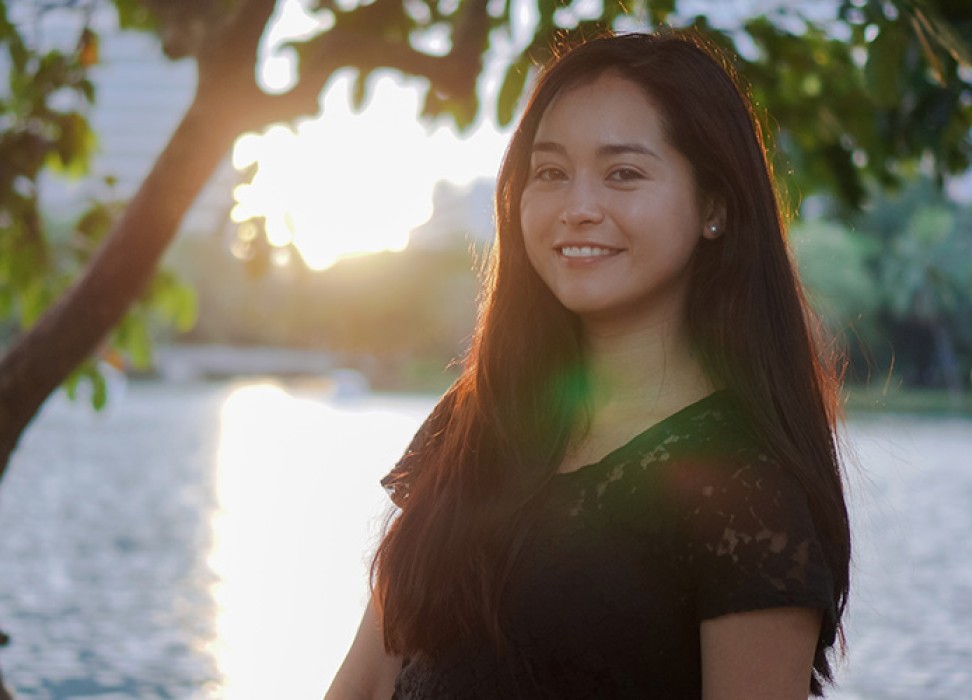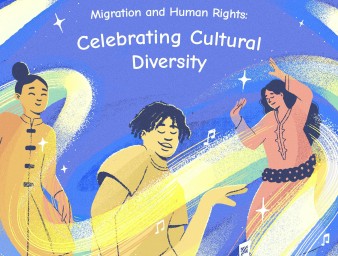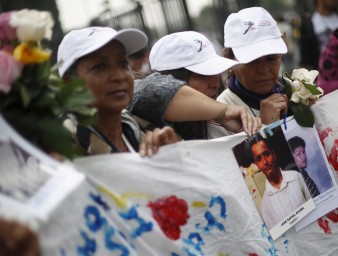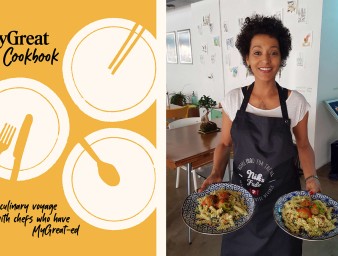Changing the narrative on migration by learning from each other
16 December 2021

“By shifting our perspective a bit and seeing what shared values we have with migrants, we can begin to change the narrative,” says Fiona Servaes. “If we focus on humanity, we’re taking big steps towards a different story on migration.”
Servaes was born to a Belgian father and a Thai mother in the Netherlands. Growing up, ‘home’ was never one place: as a child, she lived in the Netherlands, Belgium, Australia and the US, and, as an adult, is now living in Thailand.
Her personal experience as a migrant was one of the driving factors that led her to the work she does today. Servaes has an academic and professional background in migration issues, and is currently Advocacy and Campaigns Officer on Refugee and Migrant Rights at ASEAN Parliamentarians for Human Rights (APHR) based in Bangkok, Thailand.
In her current role, she supports parliamentarians on migrant issues in the region, much of the work focusing on the rights of the Rohingya in Myanmar, Bangladesh and other ASEAN countries, as well as the rights of migrant workers.
“There has been so much hate speech and discrimination against migrants in the region, especially amidst the COVID-19 pandemic,” explains Servaes. “We believe that promoting positive and hopeful messages can challenge the dominant narrative.”
Servaes and her colleagues are currently in the process of planning a public campaign to be rolled out in 2022, which will focus on shifting the migrant narrative in Malaysia. By promoting unifying and uplifting messages, it will also encourage parliamentarians to engage in a counter narrative.
“We have a lot to learn from each other”
“The pandemic has thrown challenges at everyone, but often migrants have been disproportionately affected,” says Servaes.
This is where kindness and solidarity are key, she says.
“We’re all human, facing similar experiences and emotions. We all want the best for our families and to be able to support them. Showing kindness towards migrants shows that we care and that we can connect.”
Servaes acknowledges her position of privilege: her family was able to make the choice to move countries when she was a child. Now as an adult, she can exercise that same choice.
“So many migrants don’t have that choice,” she says. “Speaking to migrants and refugees who have been forced from their homes has given me a deeper understanding of the challenges they face and has empowered me to help more.”
It’s the conversations we have with the people around us that can really strengthen empathy, and really make a difference, she says.
“We have a lot to learn from each other.”
A focus on shared values
Servaes strongly believes we need to move away from fearful narratives towards emphasising shared values. Spreading fear and the use of hateful rhetoric will only create further barriers, she says, and it builds distrust among people.
“To build greater trust and a more inclusive society, we need to look at what we have in common,” she says. “Resilience, compassion, hard work, determination: these are characteristics and values that anybody can have, and remembering this can help us connect to each other, no matter where we come from.”
Servaes recognises that narrative change on migration may take time, but stresses that it is achievable.
“Anything that requires social change takes a long time,” she says. “But by showing more humanity and empathy, by using inclusive terminology, and by allowing for diverse perspectives, we can eventually reach a more hopeful narrative.”
To do this, says Servaes, the voices of migrants and refugees themselves are not only important, they are essential.
“Giving migrants and refugees a seat at the table and allowing them to be involved in decisions that are affecting them is crucial if we want to build a new and more inclusive society.”
Migration has always been a part of the human story, says Servaes, and in recognising that, we can go a long way to showing more empathy towards migrants.
“We can only really create a better world for everyone if we all do it together,” she says. “And that starts with uplifting each other, empowering each other and standing up for people when they can't themselves.”
UN Human Rights launched the #StandUp4Migrants campaign in 2020 to help reshape the narrative on migration.
Ahead of this International Migrants Day on 18 December, share your stories and the vision of the world you want to see with us on social media by using the hashtag #StandUp4Migrants.
Disclaimer: the views, information and opinions expressed in this article are those of the persons featured in the story and do not necessarily reflect the official policy or position of the office of the UN High Commissioner for Human Rights.



